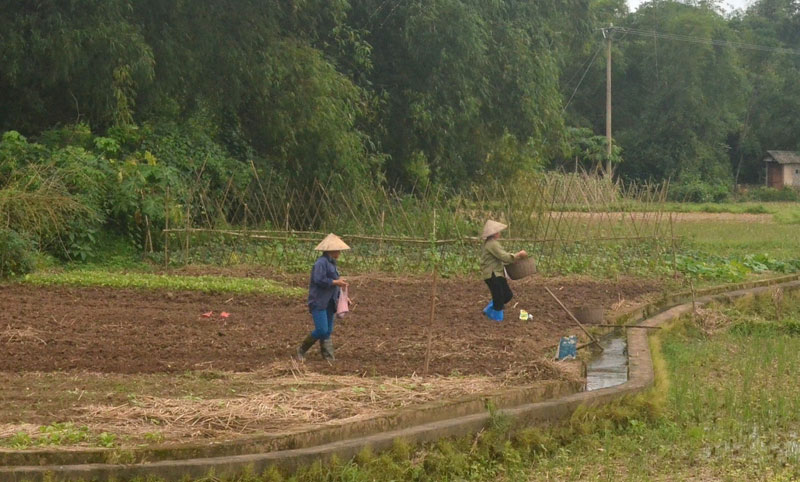



Farmers in Bo village, Trung Bi
commune grow vegetables and beans on corn areas damaged by flood.
According to statistics of the People’s Committee of Trung Bi commune, the commune had about 83.6 ha of winter crops damaged by flood, including corn, sweet potato and vegetables of the Brassicaceae family. When the rain was over and water dropped, local farmers went to the field to restore production by replanting on damaged areas. As the time was not long enough to grow moisture-loving plants such as corn, peanuts, soybeans, and cucumber, the commune shifted the plantation to winter plants like sweet potato and vegetables, with the targeted area of over 100 ha.
like Trung Bi, other communes in Kim Boi district are surmounting flood consequences to produce winter crops. Although extreme weather damaged over 430 ha of plants and slowed down production progress, local farmers were not discouraged. At present, the People’s Committee of Kim Boi district has made a list of communes to provide vegetable seeds for them with a total of more than 1.3 tonnes. As scheduled, the town and communes continue expanding vegetable areas, with the focus on the Brassicaceae family such as Sa Pa cabbage, Japan kohlrabi and Sakata Brassica integrifolia.
Deputy head of Kim Boi district’s Division of Agriculture and Rural Development Bui Van Bo said that: "winter crop production often takes place in difficult conditions, especially when bad weather affected the locality from the beginning of the season. In this situation, all communes strived to fulfil the set targets with a total area of 2,060 ha. To do this, the Division of Agriculture and Rural Development advised farmers to use the varieties having short growth time with the focus on white corn (as it can be used as food for buffalos and cows), sweet potato, potato, and vegetables as those plants can be harvested early and have good consumption. Currently, the communes are speeding up production and using plant protection measures to not only complete set targets but also ensure the quality and output of winter crops./.